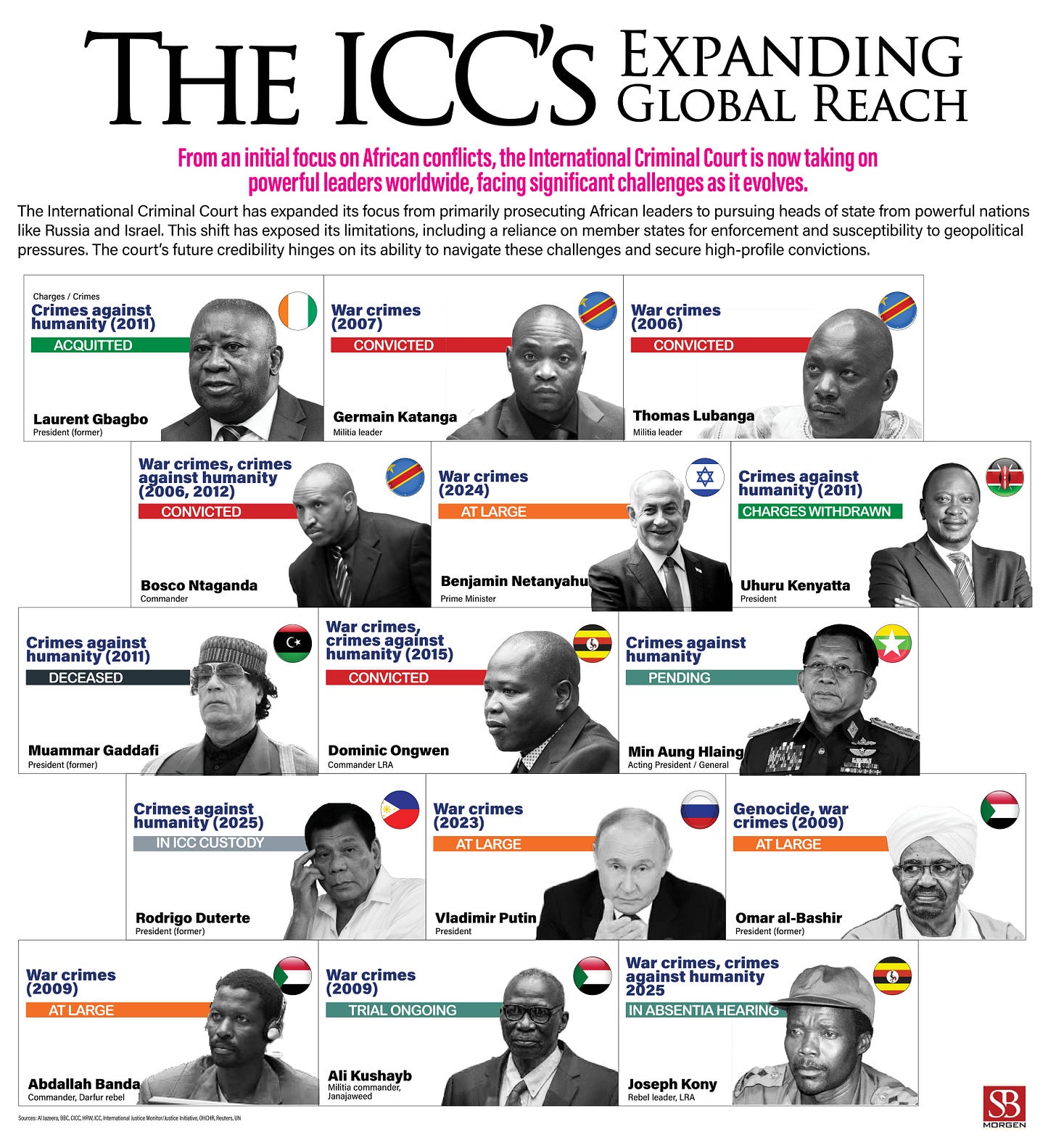ICC moves forward with Kony
The ICC has begun historic hearings against Joseph Kony for war crimes, its first case to proceed without the accused present.
The International Criminal Court (ICC) has begun confirmation hearings against Ugandan rebel leader Joseph Kony, marking its first-ever war crimes case to proceed without the accused present. Kony, founder of the Lord’s Resistance Army (LRA), has evaded arrest for two decades despite an outstanding warrant and faces 39 counts of war crimes and crimes against humanity, including murder, sexual enslavement, abductions, and the conscription of child soldiers. The hearings are seen as a historic step for the ICC, testing its ability to pursue justice even when suspects remain at large.
The International Criminal Court's (ICC) decision to proceed with confirmation hearings against Joseph Kony in absentia is a landmark moment for global justice, yet it is also a move fraught with legal, political, and symbolic complexities. The founder of the Lord's Resistance Army (LRA) has eluded international forces for nearly two decades, despite years of manhunts, cross-border operations, and bounties. That the ICC is now willing to adapt its procedures to move forward without him signals a significant shift from paralysis to persistence, reinforcing the idea that absence cannot offer indefinite protection from impunity.
Kony’s legacy casts a long shadow. He established the LRA in 1987 during the Ugandan civil war, originally claiming to seek a theocratic state based on the Ten Commandments. However, his movement quickly devolved into a campaign of terror characterised by mass killings, mutilations, and the abduction of more than 30,000 children, who were forced into roles as soldiers and sex slaves. These atrocities scarred communities across northern Uganda, the Democratic Republic of Congo, South Sudan, and the Central African Republic.
In 2003, Uganda referred the case to the ICC, leading to warrants being issued in 2005 for Kony and four of his commanders, making them some of the court's earliest indictees. Yet, despite international operations like the US-led Operation Observant Compass in 2011, he has survived with a small entourage in remote jungles, successfully evading capture.
The hearings, which began in September 2025, will test not only the ICC's legal flexibility but also its credibility. Conducting proceedings without the accused raises significant questions about fair trial standards under the Rome Statute. Defence lawyers must represent Kony remotely, with limited opportunities for cross-examination, and witness protection presents major hurdles, as many survivors live in insecure, remote areas and remain vulnerable to reprisals from LRA remnants.
The court must also contend with degraded evidence from crimes committed two decades ago, while budget constraints complicate efforts to secure reliable testimony. These challenges echo past experiences, such as the Special Tribunal for Lebanon, which also pursued trials in absentia, highlighting both the precedents and pitfalls of this approach.
Beyond the legal challenges, the case reopens Africa's complicated relationship with the ICC. Critics across the continent, including the African Union, have long argued that the court disproportionately targets African leaders and warlords, fuelling perceptions of bias and neo-colonial double standards. Uganda's own selective cooperation illustrates this tension. While Kampala's 2003 referral gave legitimacy to the ICC, its later pursuit of conditional amnesties has undermined the consistency of its stance. For regional states like Rwanda and South Sudan, the case underscores the fragility of borders still destabilised by LRA remnants.
More broadly, it reveals the contradictions facing UN peacekeeping operations, which often work alongside ICC investigators but prioritise stability over arrests on the ground.
Still, there is symbolic weight in the ICC pressing ahead. For survivors, many of whom remain displaced or traumatised, the hearings reaffirm that their suffering has not been forgotten. Even if Kony remains at large, a confirmation of charges would serve as a historical record, preserving the gravity of his crimes and signalling to would-be warlords that accountability can outlast evasion.
The proceedings also align with a wider global trend of renewed assertiveness on governance and accountability, particularly from Western capitals. However, for this assertiveness to be credible, it must extend beyond weaker states to hold powerful actors accountable as well. Otherwise, Kony's trial risks being dismissed as just another selective example of justice.
Ultimately, the case embodies the contradictions of international law in a multipolar world. It highlights both the determination to pursue accountability across borders and the enforcement gaps that persist when states are unwilling or unable to act. If the ICC confirms the charges but Kony remains free, the outcome could be seen as symbolic justice—important for history but insufficient for closure. If, however, renewed multinational cooperation secures his arrest, it would mark one of the most significant victories for international justice in Africa. Either way, the proceedings will test the balance between principle and practicality, showing both the possibilities and the limits of universal jurisdiction in addressing mass atrocity crimes.


